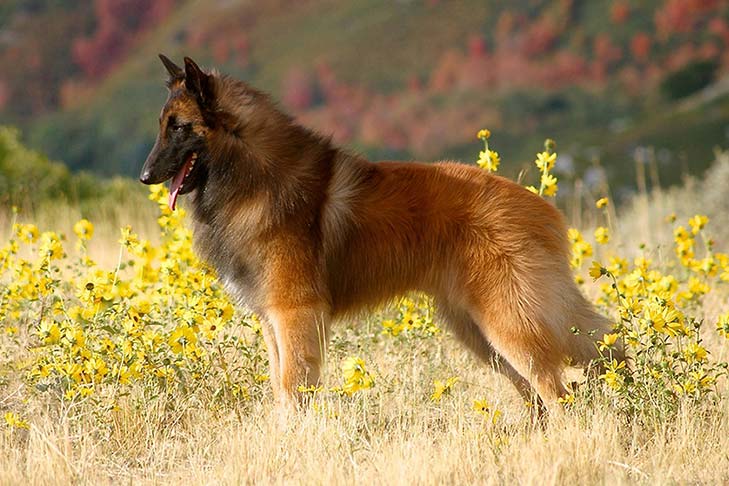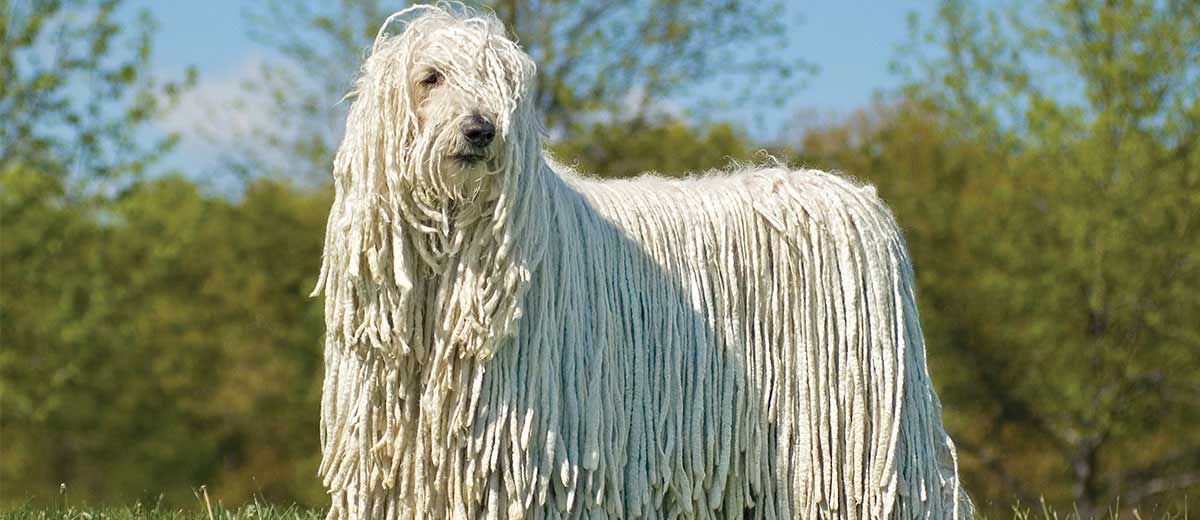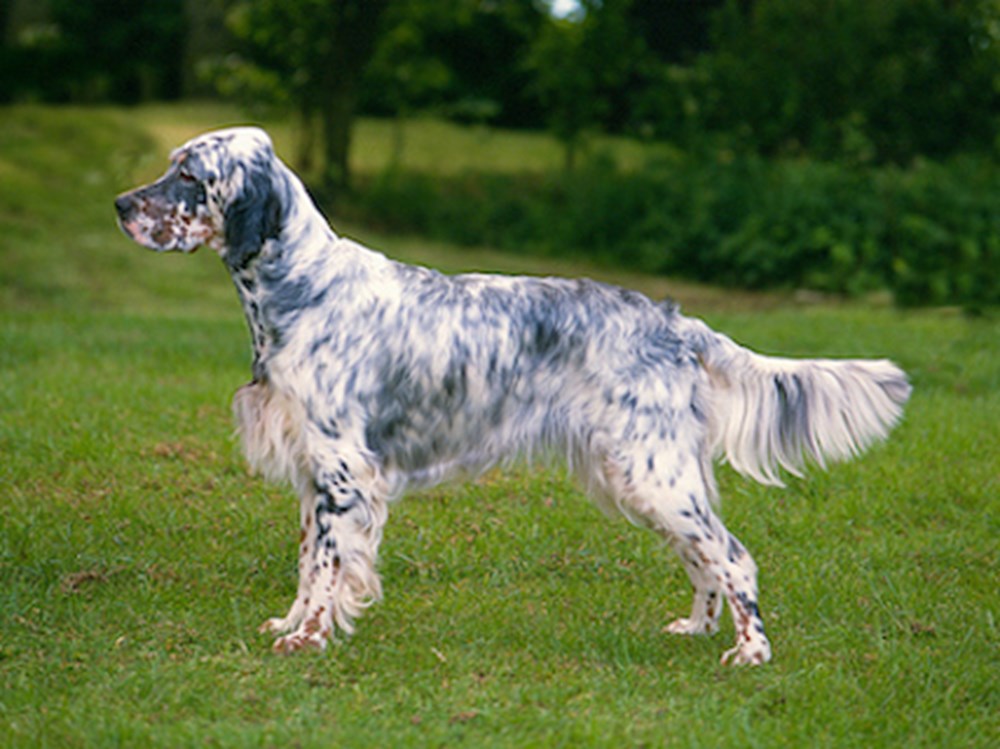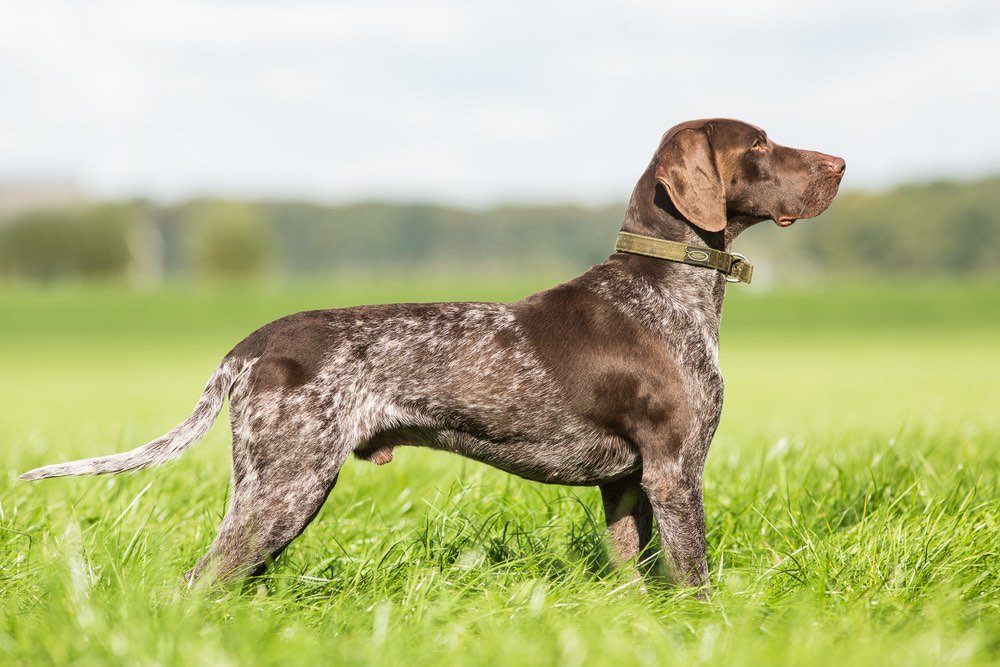
Introduction
The German Shorthaired Pointer is a versatile hunting breed with a distinct appearance and athletic ability. Originating in Germany in the 19th century, the breed was developed to be an all-purpose hunting dog, capable of tracking, pointing, and retrieving game on land and water. German Shorthaired Pointers have a short, dense coat that comes in various colors, including liver, black, and white. They are known for their intelligence, loyalty, and high energy levels, making them an excellent choice for active families who enjoy outdoor activities. With proper socialization and training, German Shorthaired Pointers can be well-behaved and affectionate companions. They are also popular in the field and show ring, where they excel in various hunting and competitive events. Overall, the German Shorthaired Pointer is a versatile and athletic breed that is loved by hunters and dog enthusiasts alike.
Temperament
Personality traits of the breed
German Shorthaired Pointers are known for their high energy levels, intelligence, and loyalty to their owners. They have a strong hunting instinct and love to explore and roam outdoors. German Shorthaired Pointers are also very social dogs and thrive on human companionship. They are affectionate and friendly towards their families and tend to get along well with children and other pets when properly socialized. However, due to their hunting background, they may exhibit a strong prey drive and need to be trained to behave appropriately around smaller animals. German Shorthaired Pointers require regular exercise and mental stimulation to prevent boredom and destructive behavior. With proper training and socialization, German Shorthaired Pointers can make excellent companions for active families who enjoy outdoor activities.
Relation with their owner
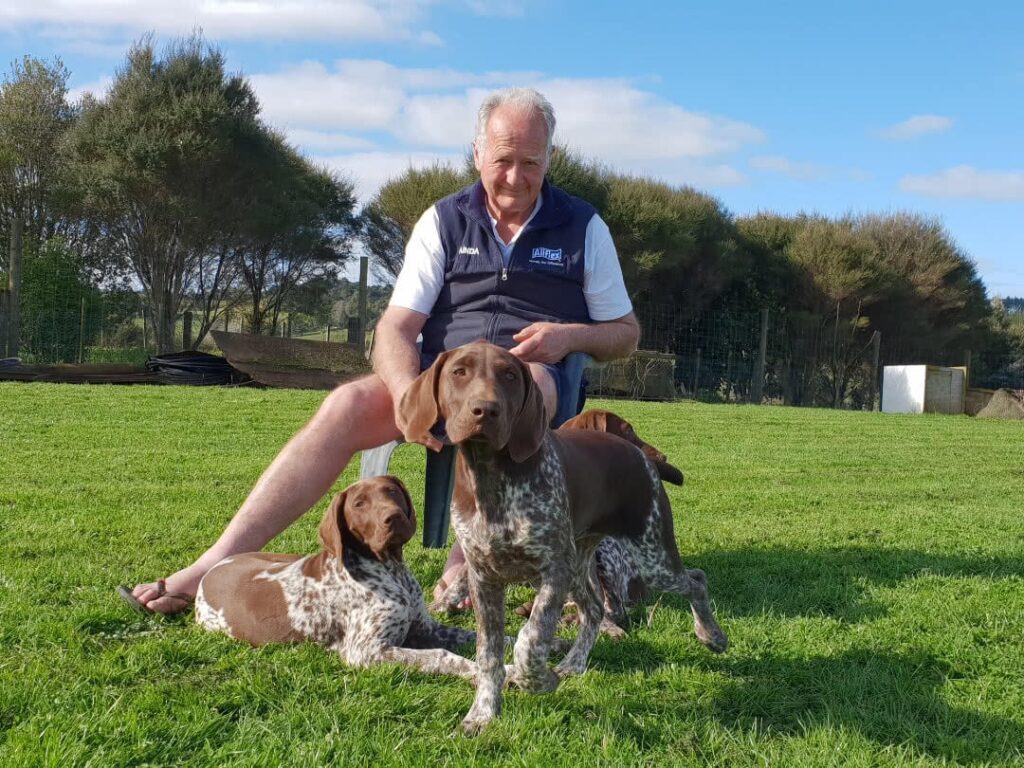
German Shorthaired Pointers are known for their strong attachment to their owners and their desire to please. They thrive on human companionship and require a lot of attention and interaction with their owners. German Shorthaired Pointers are very loyal and protective of their families, making them excellent watchdogs. They tend to be affectionate and friendly towards their owners and are eager to participate in activities with them. However, they can become bored and destructive if left alone for long periods, so they need plenty of exercise, mental stimulation, and socialization. Overall, German Shorthaired Pointers make excellent companions for those who can provide them with the attention and care they require.
German Shorthaired Pointer are good family dogs
Yes, German Shorthaired Pointers can make great family dogs for active households that can provide them with the attention, exercise, and mental stimulation they require. They are loyal, intelligent, and friendly dogs that thrive on human companionship and are generally good with children. However, they have a high energy level and require regular exercise and training to prevent destructive behavior. With proper socialization and training, German Shorthaired Pointers can make excellent companions for families who enjoy outdoor activities and are committed to meeting their needs. It’s important to note that due to their hunting background, they may have a strong prey drive and need to be trained to behave appropriately around smaller animals.
Aggression in English Pointer
Explanation of aggressive behavior in German Shorthaired Pointer
Aggressive behavior in German Shorthaired Pointers is not typical, as they are generally known for their friendly and social nature. However, like any dog breed, German Shorthaired Pointers may display aggressive behavior if they feel threatened or if they have not been properly socialized or trained. This can include growling, snapping, or biting. Aggression in German Shorthaired Pointers can also be a result of fear, pain, or illness. It’s important for owners to address any aggressive behavior as soon as it is observed and seek the help of a professional dog trainer or behaviorist. It’s also essential to properly socialize and train German Shorthaired Pointers from an early age to help prevent any potential aggressive behavior.
Why German Shepherd pointers bark a lot ?
German Shorthaired Pointers are not known for excessive barking, but like any dog breed, they may bark for various reasons. Barking can be a form of communication, a response to environmental stimuli, or an indication of boredom or anxiety. German Shorthaired Pointers are an active and energetic breed that requires plenty of exercise and mental stimulation to prevent boredom and anxiety. If they are not given enough attention, exercise, or mental stimulation, they may become bored and resort to excessive barking. Additionally, German Shorthaired Pointers have a strong prey drive, and if they are not properly socialized or trained, they may bark excessively at smaller animals or perceived threats. It’s important for owners to provide their German Shorthaired Pointers with enough physical and mental activity, socialization, and training to prevent any excessive barking behavior.
Health and Lifespan
Reported lifespan range
The reported lifespan range of the German Shorthaired Pointer is typically between 10 to 14 years. However, like any breed, the lifespan can vary depending on several factors, such as genetics, diet, exercise, and healthcare. To ensure a long and healthy life for your German Shorthaired Pointer, it’s important to provide them with a well-balanced diet, regular exercise, and proper healthcare, including routine check-ups and vaccinations. Regular exercise and mental stimulation are particularly important for this active and intelligent breed to maintain their physical and mental health throughout their lifespan.
Food for German Shorthaired Pointer
The best food for a German Shorthaired Pointer depends on their age, size, activity level, and individual needs. Generally, high-quality dog food that is specifically formulated for active breeds is recommended for German Shorthaired Pointers. Look for dog food that contains high-quality sources of protein, such as chicken, turkey, or fish, and avoid foods with fillers or artificial preservatives. It’s also important to ensure that the food you choose provides balanced and complete nutrition, including vitamins, minerals, and essential fatty acids. Some German Shorthaired Pointers may have specific dietary needs or sensitivities, so it’s always best to consult with a veterinarian to determine the best food for your individual dog. Additionally, it’s important to monitor your dog’s weight and adjust their food intake as needed to maintain a healthy weight.
Training for German Shorthaired Pointer
German Shorthaired Pointers are intelligent and eager to please, making them relatively easy to train with positive reinforcement techniques. Here are some tips for training a German Shorthaired Pointer
- Start early: Begin training your German Shorthaired Pointer as soon as you bring them home. Early socialization and training can help prevent problem behaviors down the line.
- Use positive reinforcement: Reward your dog with treats, praise, and playtime for good behavior. Avoid harsh punishment or physical corrections, as this can damage your dog’s trust in you and lead to aggressive behavior.
- Be consistent: Use consistent commands and rewards to help your dog learn quickly. Use the same verbal commands and hand signals for each behavior, and always reward good behavior with positive reinforcement.
- Focus on obedience training: Focus on teaching basic obedience commands such as “sit,” “stay,” and “come.” Once your dog has mastered these commands, move on to more advanced training such as agility or scent work.
- Provide plenty of exercise and mental stimulation: German Shorthaired Pointers are high-energy dogs that require plenty of exercise and mental stimulation. Make sure your dog has plenty of opportunities to run, play, and explore to prevent boredom and destructive behaviors.
- Consider professional training: If you’re struggling with training your German Shorthaired Pointer, consider enrolling them in a professional obedience training program. A professional trainer can help you develop a customized training plan for your individual dog’s needs and work with you to overcome any behavioral challenges.
Conclusion
the German Shorthaired Pointer is a versatile and energetic breed with a friendly and loyal personality. They are highly intelligent and trainable, making them suitable for a variety of activities, including hunting, agility, and obedience competitions. German Shorthaired Pointers are good family dogs, but they require plenty of exercise and mental stimulation to prevent destructive behaviors. Proper socialization and training are essential for preventing aggressive behavior, and positive reinforcement techniques are recommended for training this breed. With proper care and training, German Shorthaired Pointers can make excellent companions for active families and individuals who enjoy spending time outdoors.
